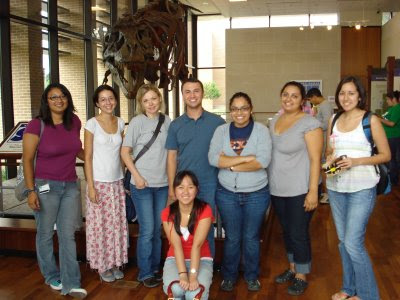 The institution: University of New Mexico Sevilleta Field Station
The institution: University of New Mexico Sevilleta Field StationThe program: This interdisciplinary program will train in independent research under the guidance of UNM faculty in Biology and Earth and Planetary Sciences. Students will conduct independent research at the Sevilleta, and present results at the annual research symposium. They will also attend a weekly seminar and journal club, and interact with visiting speakers. The program includes faculty in ecology, the geosciences, and meteorology. The summer program includes a seminar series, a journal club, an annual symposium, professional development workshops, ethics training, and fieldtrips.
- 1 June - 14 August 2009
- $4,500 stipend for 11 weeks
- Lodging and laboratory space provided at no cost
- Travel costs to and from the UNM Sevilleta Field Station up to $500 refunded
Eligibility:
- Maintain undergraduate degree through Summer 2009
- Interest in conservation biology and ecology
- U.S. Citizen
Application deadline: 20 March 2009
More information: http://sev.lternet.edu/reu















































